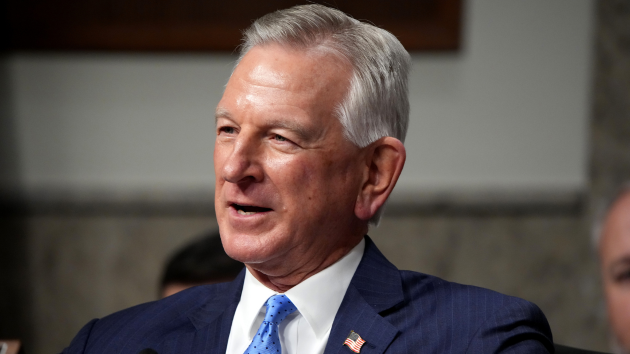Nation’s founders pushed against ‘elected king’ when framing presidential powers: Historians
Written by ABC Audio ALL RIGHTS RESERVED on July 3, 2024

(WASHINGTON) — The Supreme Court’s ruling that presidents have immunity for “official acts” goes against all of the principles the nation’s founders pushed for as they drew up the Constitution, historians and legal experts argued.
Fifteen constitutional historians, represented by the liberal non-profit policy institute the Brennan Center for Justice, filed a friend-of-the-court brief to the Supreme Court In April, challenging former President Donald Trump’s claims that current and former presidents enjoyed “absolute immunity” from criminal prosecution.
“Advocates for the new Constitution sought to assure state ratifying conventions that the new President would not be an elected king,” the brief said.
Holly Brewer, an associate professor at the University of Maryland and the brief’s main author, told ABC News that historical writings from key figures, including Alexander Hamilton, James Madison and others as well as the records from the states as they ratified the Constitution explicitly show they were against “another runaway monarchy” after suffering under Great Britain’s King George III.
“It was remarkable. There were so many issues where the founders disagreed, but this was not one of them,” she said.
Brewer said the founders all looked at history in order to not repeat the same mistakes they thought had led to the absolute rule by king they opposed, holding to the concept that “no man is above the law.”
“The Framers came to the Philadelphia Convention of 1787 determined not to replicate the British monarchy they had defeated. They argued among themselves about the appropriate balance of power between the executive and legislative branches, and the specific powers attached to each. But at no point did they seek to endow the President with prerogatives that would make him an ‘elective King,'” the brief said, citing James Madison’s “Notes on the Constitutional Convention.”
Thomas Wolf, director of democracy initiatives at the Brennan Center who co-authored the brief, told ABC News that the anti-monarchal spirit among the founders was so strong that even those who pushed for a stronger executive branch, such as Hamilton, argued that a president could be prosecuted.
For example, during the convention, Hamilton argued for an elective executive to serve for a lifetime but only “during good behaviour” and be subject to prosecution and removal.
While the founders were debating the immunities for Congress, James Madison suggested a similar discussion for the president, however, no one else wanted to take up the discussion, Wolf said.
“He brought it to the floor and everyone decided they should go home instead,” he said.
Wolf and Brewer said the Constitution’s ratification among the states hung on the idea that the president could be held accountable for abuses and crimes.
“In advocating for ratification, the Founders sought to reassure the ratifying conventions that “Our President is not a King, nor is our Senate a house of Lords.” the brief said citing speeches in state conventions during the ratification process.
“At every state ratification convention, this was an issue and the states were reassured [the Constitution] would not result in another runaway monarchy,” Brewer said.
Justice Sonia Sotomayor also invoked this idea in her dissent arguing that under the conservative majority’s ruling the president “is now a king above the law.”
“The Court effectively creates a law-free zone around the President, upsetting the status quo that has existed since the Founding,” she wrote.
Wolf said that the Supreme Court’s majority ignored fundamental and well-documented facts from the nation’s history in its ruling.
“The framers already considered granting criminal immunity and rejected it which means they concluded an energetic executive could still be considered for criminal prosecution,” he said.
Copyright © 2024, ABC Audio. All rights reserved.

 KVSP
KVSP 




